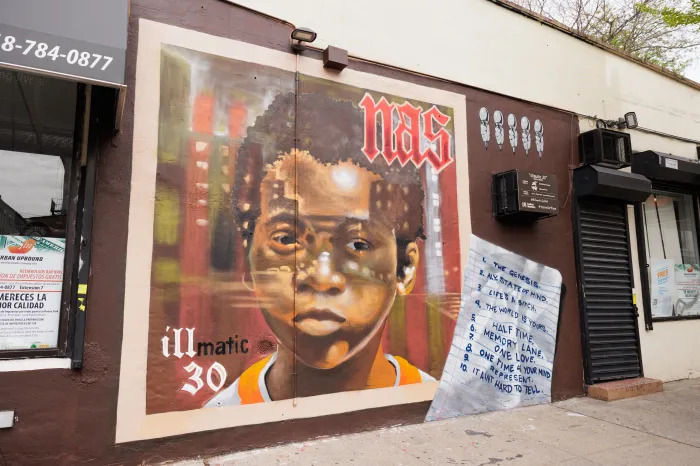By Diana R. Cabral
Along a commercial strip on Lenox Avenue in Harlem sits a historic New York jazz home, Lenox Lounge — its Art Deco façade designed by Raymond Loewy, the father of industrial design, stands out among the many other drab businesses on this wide street.
Inside you’re taken back in time to the heyday of the jazz era. The bar looks like it has not changed since at least the 1950s or ’60s save for the giant HDTV’s peering down from the walls.
It’s here — in the legendary Zebra Room — where St. Albans native Carl Bartlett Jr. and his quartet performed Friday evening, gracing the tiled floor once occupied by music legends Sarah Vaughan, Billie Holiday, Thelonious Monk and Miles Davis.
The aptly named room, whose walls are covered in black and white zebra wallpaper with framed prints of greats like Vaughan, Davis and Monk, is an intimate backroom behind the Lenox Lounge’s bar.
The quartet started their set with a Monk recording: smooth, fluid with hints of drum beats, piano and notes on the upright bass that took center stage.
The Carl Bartlett Jr. Quartet plays Lenox Lounge four times a year and Bartlett, now living in Cambria Heights, described his music as straight-ahead jazz but progressive.
Growing up in St. Albans, the Manhattan School of Music alum began taking piano lessons at age 7, then moved on to the clarinet while in elementary school. In his teens and in college he started playing jazz and picked up the saxophone. Bartlett started his quartet while in college in the early 2000s and graduated with a bachelor of music in jazz performance in 2004.
Though the historic lounge — once a fixture of the Harlem Renaissance — has regular jazz performers like Bartlett and a steady local clientele, it is in danger of shutting its doors.
“We are doing whatever possible to stay open,” said Toni Alexis, a Lenox Lounge manager.
Though she would not go into detail, she said they are exploring different ideas, including landmarking the building. The owner, Alvin Reed, has sought legal counsel and has reached out to the New York City Landmarks Preservation Committee. Reed, who bought the lounge in the 1980s, is committed to keeping it a vibrant place for jazz in Harlem.
Knowing the lounge’s difficult position, Bartlett was adamant about the Lenox Lounge’s place in the jazz scene.
“The jazz community cannot afford to lose a historic place like this, where all of the greats have come through,” he said. “For this to close would be a huge blow to the New York jazz scene.”
Still, some of the management of the lounge maintained their optimism.
“It doesn’t look as bleak. This neighborhood is on an upswing,” said Malaika Davis, another lounge manager.
Opening its doors in 1939, Lenox Lounge whose regular patrons included a who’s who’s of important African-American figures like James Baldwin and Malcolm X, has weathered both the decline of the area and its recent upturn. Currently, the lounge is on a month-to-month lease with the landlord.
“We will be open in September,” assured Davis.
If You Go
Lenox Lounge
288 Lenox Ave.
Harlem
(212) 427-0253
lenoxlounge.com






























